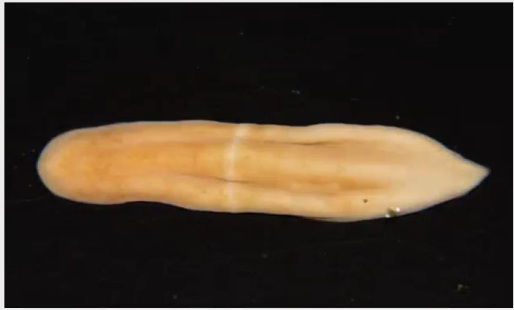
Researchers in Japan have discovered a bizarre new species of worm that lacks a number of internal features common to other animals, including an anus. The scientists believe that this latest finding could surely shed light on the origin of animals' complex internal body parts. This latest study was published the journal BMC Evolutionary Biology.
A team of scientists from the University of Tsukuba in Japan found the yellowish primitive marine worm, scientifically known as Xenoturbella, on the seafloor of the western Pacific Ocean. The researchers captured a two-inch female and a 0.4-inch juvenile and examined the specimens using MicroCT scanning to find more about it.
According to the experts, the worm lacks certain seemingly-important body parts, such as a centralized nervous system, kidneys, brain and an anus. Thus, it is clear that these weird creatures lack the ability to breathe air, bleed or poop. However, they can eat, with the help of tiny, oval-shaped mouths.
The researchers have found that the body of the worm was contaminated with several species of bivalve DNA suggesting that Xenoturbella japonica, a name given by the researchers, feeds on bivalves.
Xenoturbella is a group of simple, tiny, worm-like species that have almost no complexity to their body plans, which appeared near the root of the animal kingdom's tree of life. Several members of the genus do excrete what they eat but not from their back side. They have a separate opening that leads to their bag-shaped digestive track, and it's the same opening that they excrete from. The new species may well do the same.
However, researchers believe that the unique features of this creature might mean that it's an even more primitive and could be an ancestral form of the the Xenoturbella group.
In the past, it was very difficult to study about marine worms in the genus Xenoturbella as the creatures dwell hundreds or thousands of feet beneath the surface. However, the researchers believe that the latest discovery could offer a new solution.
"One habitat where X. japonica was found is easily accessible from a marine station," so the new species could be valuable for researching the evolution of these types of worms, co-author Hisanori Kohtsuka said in the statement.









